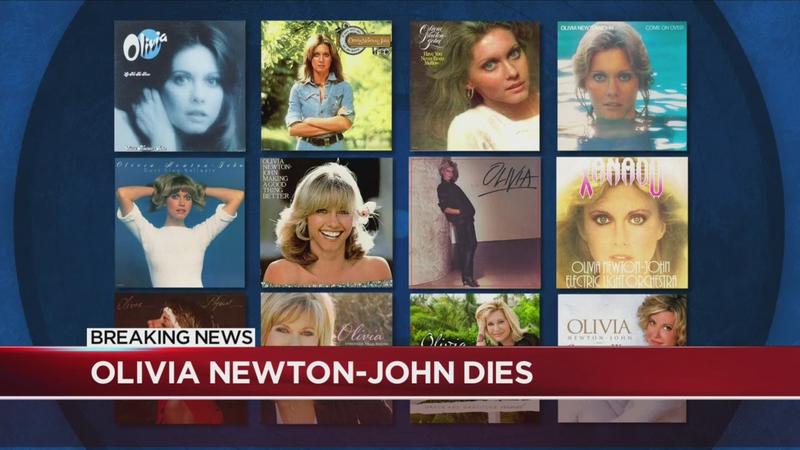Olivia Newton-John, pop singer who found stardom with ‘Grease,’ dies at 73
[anvplayer video=”5127356″ station=”998131″]
Olivia Newton-John, a British Australian pop star who dominated the pop culture of an era, has died after repeated treatments for cancer, her husband announced Monday. She was 73.
"Dame Olivia Newton-John … passed away peacefully at her Ranch in Southern California this morning, surrounded by family and friends," John Easterling, her husband, announced on her official Facebook page. "We ask that everyone please respect the family’s privacy during this very difficult time."
"Olivia has been a symbol of triumphs and hope for over 30 years sharing her journey with breast cancer. Her healing inspiration and pioneering experience with plant medicine continues with the Olivia Newton-John Foundation Fund, dedicated to researching plant medicine and cancer."
In the late ’70s and early ’80s, Newton-John was one of the most recognizable celebrities in the world. She stole hearts in the 1978 blockbuster "Grease" and dominated the charts with songs like the 1981 hit "Physical," which was the No. 1 single of that decade, according to Billboard.
She is credited with selling more than 100 million records over the course of a five-decade career.

In more recent years, however, Newton-John became best known as an advocate for breast cancer survivors, being one herself since first her first diagnosis in 1992.
"I think, you know, what you think creates your reality. So it’s a decision. You have to make that decision," she told the "TODAY" show in March 2019. "You can be a victim, or you can be a winner and enjoy your life.”
By all accounts, Newton-John lived a winning life.
Newton-John was born in Cambridge, England, in 1948 to a father, Brin, who was both a World War II hero with British military intelligence and a professor of German literature, and a mother, Irene, whose own father, physicist Max Born, would win a Nobel Prize six years later. But from an early age, it seemed she was not destined to follow into the family business of academia.
After her father took a job at a college in Australia, the family moved to Melbourne when Newton-John was 5. Just a few years later, she won a talent contest on one of the country’s most popular television shows, “Sing, Sing, Sing.” By the time she was 15, she had formed an all-girl group and later partnered with her friend Pat Carroll for the pop duo Pat & Olivia.
But it would be as a solo artist, starting in 1966, that Newton-John would hit her true potential. She broke through on this side of the Pacific with her third solo album, "Let Me Be There," in 1973, with the title track earning the singer her first Grammy Award, for best female country performance. Newton-John would score her first No. 1 and her next two Grammys a year later with the country ballad "I Honestly Love You."
So when "Grease" director Randal Kleiser was looking to cast the role of Sandy, a straight-laced Australian student who falls in love with a greaser and ultimately becomes one herself, he at least knew his first choice could sing, whether or not Newton-John could act opposite the red-hot John Travolta, who was fresh off "Saturday Night Fever."
"Olivia Newton-John was our first choice for the part of Sandy, but she had a few concerns," Kleiser recalled by email. "She had had a bad experience on an English film and didn’t want to repeat it."
"(At 29 years old) she wasn’t sure she would look the part of a 17-year-old and wanted to make sure she and John looked like they could be contemporaries," Kleiser said. "He was a bit younger (at 23). She asked to have a screen test so she could see how she would come across and feel how the chemistry would be between she and John and myself."
Fortunately, the test worked well enough to convince her that she could handle the part.
"She embodied the character in the beginning of the film, and we all hoped she could pull off the sexy vixen at the end," Kleiser said. "We couldn’t have been more thrilled by the final result."